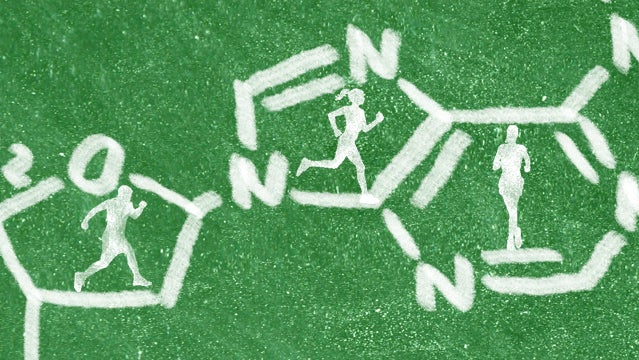After the prestigious journal Science published a study last week showing that modifying a genetic pathway in mice caused them to gain weight, the media, predictably, gorged itself on the findings: Headlines across the web touted the discovery of the “fat gene.” The New York Times declared, While BBC News announced the
Whenever a study identifies a genetic cause to obesity, the headlines explode. But this time, it appeared to be with good cause. Researchers also showed that some obese children share the same genetic syndrome found in the obese mice. But if we get past the media hype, what exactly did the study show and how applicable are the findings to active, health-conscious, and outdoorsy people?
The Study
Researchers deleted a key gene that helps to control how quickly calories are burned in mice. When fed a standard diet as youngsters, the mice with the gene modification gained weight. It was only after cutting their calorie intake by 10 to 15 percent that the mice were kept slim. As adults, their appetites became monstrous—eating much more than their normal cousins when given the chance. However, both groups were essentially sedentary with no access to running wheels
The Hype
Though it’s incredibly rare, some children with severe early onset obesity have a similar version of the syndrome researchers created in mice. This discovery begged the question: Might this gene—or one like it—be responsible for the obesity epidemic? In truth, we might never know. Rodents given access to running wheels don’t become obese, making real-life comparisons between active people and active mice impossible.
The Caveats: Is Disease or Inactivity Being Studied?
The science doesn’t support a jump from mice to people in this instance. While a number of genes have been linked to obesity in people, their effect is small compared to other factors, such as diet and exercise. And unlike the case of massively obese young children, researchers have yet to find a genetic fingerprint for garden-variety obesity, the slow and steady weight gain that happens over time to much of the population in our overfed and under-exercised world.
While we focus on the role of genes, their effect on bodyweight only shows up in populations with lots of sedentary people. Obesity in a large fraction of the population has only emerged as society has become both less active and more voracious. The Amish, for example, practice non-mechanized muscle-powered farming. Despite eating 3-4,000 calories a day or more, they are protected against obesity—regardless of genetics—by their level of exercise.
The Bottom Line
If you’re active enough and modify your diet a bit, any genetic predisposition to obesity is unlikely to make a big difference. From a practical perspective, a 10 to 15 percent difference in food consumption for a totally sedentary human—like what was studied in the mice—would be 100 to 200 calories a day, equal to waking a mile or two. A minimal level of added activity is all it would take to counteract your genetics. If you can’t hit your race weight, it’s not because of this gene.
More broadly, the fact that physical activity, in general, and exercise training, in specific, keeps you healthy is not news. But it’s important to keep those facts in mind when coming across stories about genes that cause disease X in animals do Y in humans. The genetics of most common human disease are far more subtle and the impacts of things like physical activity can profoundly modify what they do to us.
Michael J. Joyner, M.D., is a physiologist and anesthesiologist at the Mayo Clinic and a leading voice in the world of exercise physiology. Over the last 25+ years, he’s published 100s of studies many of which have focused on how humans respond to exercise. Dr. Joyner also writes at . The views expressed in this post are his own and do not reflect those of his employer.


